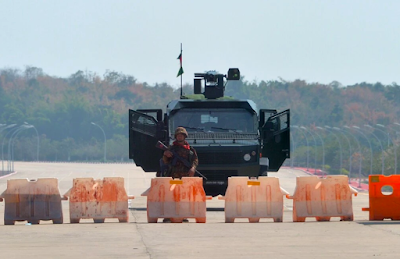Biden, the United States and China.
A new administration is often the chance for a reset in foreign policy. The inauguration of Jo Biden on January 20th as the 46th President of the United States is no exception. The contrast with the Trump administration is already evident with the return to prior norms of conduct. Already gone are the endless self-promoting tweets that frequently made policy on the fly. So what can we expect from a Biden administration when it comes to US-China relations? In many ways, we can expect a return to the priorities and character of the Obama administration. While it is overly simplistic to consider that Biden will effectively represent a proverbial third term of the Obama years, he has staffed many of his key Cabinet posts with colleagues who served under Obama. Most notable is the appointment of Anthony Blinken to Secretary of State and the nomination of Samantha Power to direct the U.S. Agency for International Development. Blinken served as Biden’s National Security Advisor during the Obama administration and helped craft policy on Afghanistan, Pakistan, and in countering Iran’s nuclear program. Samantha Power has long been an advocate for the United States to use its power and influence to promote human rights and civil society worldwide and served under Obama as U.S. Ambassador to the United Nations.
While Biden is unlikely to quickly abandon the Trump-era tariffs, we should nevertheless expect a noticeable change of tone in the new administration’s language on trade and technology issues. Moreover, as signaled by the immediate re-joining of the Paris Climate Accord, we can expect the Biden administration to return to a focus on multilateralism and cooperation more generally. Rather than treat China as an existential threat to the United States, the Biden administration is likely to seek resolution of ongoing trade disputes through the World Trade Organization and dial-back the explicit China-bashing that became such a prominent feature of the Trump Presidency.
In multiple arenas, cooperation between the two superpowers will be essential to resolve significant global challenges. Climate change is perhaps the most obvious, but so will be cooperation to bolster responses to future pandemics, deal with North Korea’s nuclear program, and ensure peace and stability in the South China Sea. For increasingly nervous and skittish allies in East Asia, leaders will look for signals of a renewed commitment to the Pacific theater. Here, none would be greater than by resurrecting the Trans-Pacific Partnership.
 |
| Chinese troops deployed in Xinjiang (courtesy AP Eugene Hoshiko) |
In summary, we can likely expect that the Biden administration will return to a policy of constructive engagement with China while restoring and bolstering relations with other Asian partners. We can expect the new administration to highlight continued abuses of human rights by the Chinese Communist party, especially of the Uighur and Tibetan minorities. However, such criticism will be made in a more diplomatically measured tone and tenor that will signal that these will not be impediments to a broader restoration of normalcy in US-China relations.
One potential new challenge will be whether, after four years of China-bashing by the Trump administration, President Xi will be receptive to a return to the pre-Trump status quo. China has grown more self-assertive and more nationalistic since 2016, while Xi has concentrated power to himself more than any other leader since Mao Zedong. Xi may feel emboldened to press for a reset that does more than return to the status quo but instead recognizes China’s elevated power and influence. Measured criticism of Chinese policies in Xinjiang or in the South China Sea may no longer be received the way they once were. Achieving a balance between peaceful coexistence and competition will be difficult. Nonetheless, President Biden’s experience, coupled with the continuity Obama-era alumni will bring, should ensure that the White House is prepared and capable of rising to the challenge.




Comments
Post a Comment